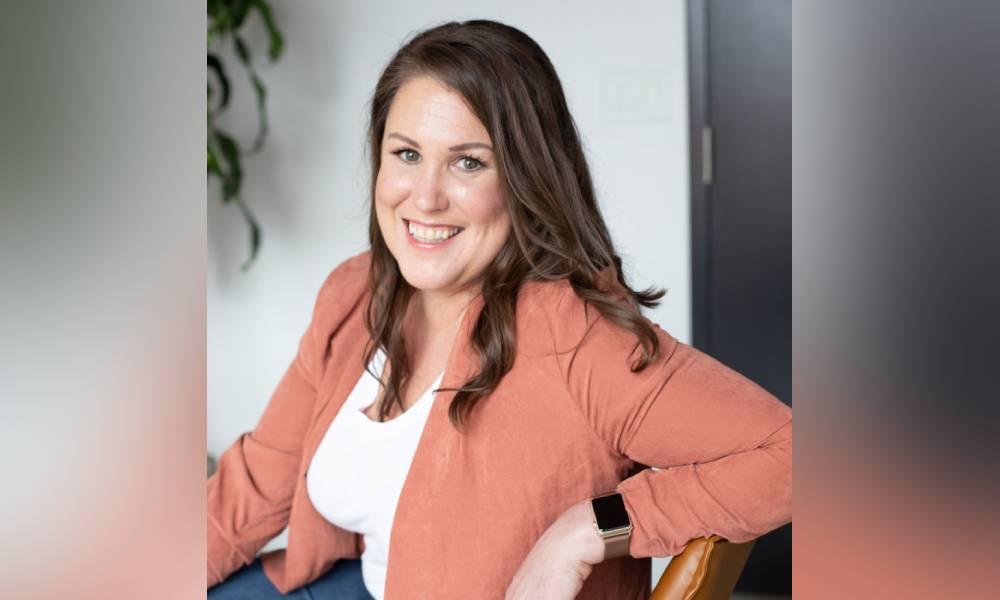Finance professionals have to show emotional intelligence to work with clients when they’re at their lowest point, says advisor

Charlotte Paul is a Toronto financial advisor who works with women during some of life’s most stressful periods – death and divorce. She’s been there herself and, although she sees more women divorcing than being widowed during the pandemic, she’s got some key advice for advisors who want to support them.
“Just have an element of emotional intelligence,” Paul, who is also an associate portfolio manager with Perspective Wealth Management, Raymond James Ltd., told Wealth Professional while sharing what she’s learned from her life and practice. “It sounds cliché because we always say you need to listen, but you really need to listen when it comes to people who are in these emotional states of mind because they may not be thinking clearly.”
Her business is primarily female – women regrouping after a separation or being widowed, from age 27 to 93, with an average age of 42. But many change advisors after a partner’s death or departure because they don’t understand what the advisor is saying or aren’t hearing from them.
“The other thing is them being told: ‘Don’t worry’. And they’re going, ‘like, don’t worry. What does that mean? Why shouldn’t I worry?’ It may not be malicious, but it’s so paternalistic,” said Paul. “When an advisor says to somebody, ‘don’t worry’, they legitimately think they’ve got it, in their mind, handled. But you need to tell the client why they don’t need to worry and do it in simple, plain language. Some people struggle with that as this language is extremely technical. Don’t be condescending. You don’t need to dumb it down. Just explain it simply.
Paul’s partner died after a honeymoon-like year, just a few months after they began cohabiting. She was impacted by both the shock of his sudden death, but also what she discovered financially after, so she gets what many women are experiencing.
“I do notice when I’m talking to other widow clients and I tell them, ‘yes, I’ve shared in this experience’, I can actually see a physical sense of relief wash over them. It’s like, ‘you get me. I’m not going to have to explain things about how I’m feeling a million times and it’s okay that I’m probably going to come in and ask you the same question three times because my head’s not screwed on right’,” she said.
What she’s learned is that everyone is in a different state – depending on whether it’s death or divorce, and the relationship length. Many have been in traditional roles, and don’t know what’s happened in the other. “You compound that over 20 years, whether it’s a divorce or a death, things can really get messed up in that period without you knowing it,” said Paul.
She also learned women can feel guilt or shame about being in certain situations. “A lot of the time, I hear people say, ‘I should have known this. I should have been more involved.’” She can identify with that. Even after working in this industry for 20 years, she didn’t realize all that was happening behind her partner’s financial scene, so ended up asking: “how did I not now that this was happening?” She realized she hadn’t had the conversations she needed with her partner. But, then she had to let that go and take control of her financial destiny, so she recommends her clients do that, too.
“Let that stuff go and take control of your own financial destiny because we can’t change what happened in the past,” she said. “All you can do is move forward and empower yourself by becoming educated. Know where your money’s going and what your retirement looks like. That’s empowerment.”
Whether women are widowed or finally have a separation agreement, often the conversation is not only about protecting themselves, but their families – now and in the future. That may include whether they can work or want – and can afford – to stay in their home, and whether they should use insurance policies to pay off a mortgage or gift adult children or charities that might have helped their spouse during an illness and passing.
“I tend to get people, unfortunately, when they’re at their worst point,” said Paul. “And, of course, planning is ever-changing. So, even if you had done a good financial plan as a couple, well, now you’re a single person, so that plan goes out the window.”
“Everybody comes in at a little bit of a different place emotionally, and has different feelings about the person, whether it’s a divorce or death,” she added, noting some may be shell-shocked after a spouse’s death or departure and need time to stabilize before developing a financial plan. “Because if you give somebody too much, too soon, and they’re not ready to do it, they’ll shut down. So, it’s having those delicate conversations and trying to figure out where the person’s at and where I can come in and help, and what help they’re ready to take on at that point.”
The stages she walks them through include updating their wills and beneficiaries, then developing a financial plan, and finally looking at estate planning and charitable giving. Sometimes, she said, she has to slow clients down so they don’t use an insurance payout to pay off a mortgage or make an immediate charitable gift. “I encourage them to put heir oxygen mask on first,” she said, so they can manage the inevitable twists and turns ahead.
“I think it’s really hard, when women go through a major life change, to think ahead because there’s so much that has to be done in the moment, and it’s hard for us to imagine 20 years from now,” she said. “But there’s some comfort in having a plan, even if you know it is going to change.”



